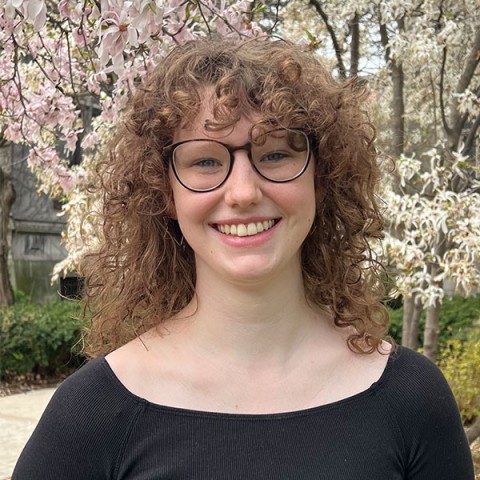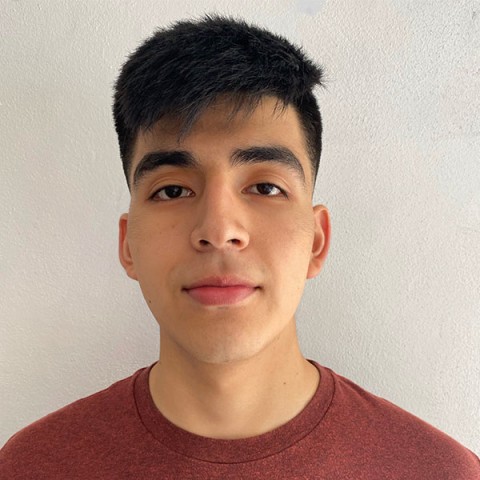The University of Chicago is home to hundreds of the world’s most advanced laboratories and research facilities. The Inside the Lab series gives audiences a first-hand look at the University’s research laboratories and the scholars who are tackling some of the world’s most complex problems.
The work of the Sheffield Lab—where they use imaging techniques and virtual reality environment to measure the activity of neurons and their connections within the brain in an effort to understand how memories are created, stored and retrieved at the biological level—was recently featured in the series.
Stacia Konow, a fourth-year studying neuroscience, and John Ponce, a third-year double majoring in neuroscience and psychology, both work in the lab. Learn more about their experiences below.
How were you first connected to the lab?

Konow: I took Dr. Sheffield's cellular neurophysiology class in my second year, and I had a fantastic time in the class. I was really interested in his research, which he talked about a bit during the quarter. So just one day after class, I went up and started asking him questions about the lab, if he was looking for undergraduates to work in the lab… one thing led to another, and I was connected with a position that I’ve held ever since.
Ponce: I took cellular neurophysiology with Dr. Sheffield last year (Winter 2024), and was really intrigued by the work in his lab. Over this past summer as I was thinking of what I wanted to do for my thesis and looking back at the different classes that were interesting to me, this one kept coming to mind. So I reached out to Mark and set up a meeting to talk about the possibility of me joining the lab. Thankfully, it all worked out.
What type of work have you been a part of?

Ponce: The lab studies place cells in the hippocampus, which help us remember our spatial environment. I’ve been working with my direct mentor (Ariana Tortolani) on a project about how turning off mossy cells of the dentate gyrus affects the activity of place cells when mice explore both familiar and new environments.
Konow: We know that there's a lot of evidence that the place of drug use is really significant, especially when looking into relapse and how that works. I've been working mainly on one project that is trying to figure out how drug place-associations form in the brain. We use a virtual reality setup, which is pretty interesting. A mouse is running in a virtual environment, and they're given a reward at a specific place, and then I try to figure out what their cells are doing and how that place is represented in their mind.
How do you think this experience of working in a lab has influenced your undergraduate experience at UChicago?
Konow: I think it's definitely made me better at asking questions and understanding how things are related. In a lot of science classes, it helps to be able to read a paper, think critically about it and then think about what I would do in that scenario. It's a great way to problem-solve. For example, if a problem set is not going the way I thought it was going to go, I don't panic. I think, “Okay, there's going to be another way to figure this out.” So that's been very helpful.
Ponce: I've been very interested in research since high school. Research has always been super interesting to me, especially neuroscience research. Especially in this field, there are a lot of unknowns, and I like the idea of digging deeper into something that's unexplored. My time at UChicago, especially this past year, has been an incredible experience because I've had exposure to different methodologies and gotten experience like working as a scientist. I like making connections between the lab and my classwork. Regardless of what I do after graduating, I think I will definitely be continuing to do research.